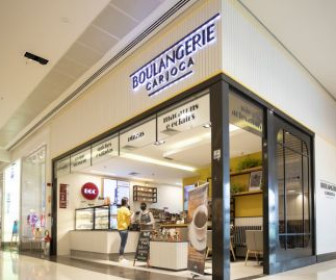Tacos are the most important meal of the day,’ according to Rusty Taco’s late co-founder, and Chronic Tacos’ CEO is another player who probably agrees. Is the better-taco restaurant fast-casual’s next big thing?
Buffalo Wild Wings found the taco concept it had been looking for right in its own backyard.
The Minneapolis-based chicken wing chain had been scouring the earth, looking for an upstart taco concept it could buy and nurture as part of its effort to invest in growth chain, such as its recent investment in the fast-casual pizza-concept PizzaRev. Company employees had tried tacos at more than 100 different restaurants.
“We wanted to find the right street taco, or taco-influenced concept,” said Kathy Benning, Buffalo Wild Wings’ chief strategy officer. One of Benning’s team members who had dined at a Rusty Taco in Northeast Minneapolis and struck up a conversation with the franchisee, walked away impressed. By August of this year, Buffalo Wild Wings bought the Dallas-based Rusty Taco.
Rusty Taco is part of a crop of concepts that have emerged in recent years to do an end-around in the competition with fast-casual Mexican places like Chipotle, Moe’s Southwest Grill and Qdoba. Instead of giant burritos, these chains are offering street tacos, reminiscent of the Mexican taquerias that popped up in working-class neighborhoods in Mexico in the 1800s before spreading to the Southwest U.S.
Tacos are something of a no-brainer. Americans ate 4.5 billion tacos in 2012, according to the website Forkling. Tacos are flexible, and can be made from a wide variety of ingredients that even span the globe—there are Korean tacos, for instance, and Indian tacos. The meal can be eaten on the go, which fits with the modern, on-the-run lifestyles. And the concepts lend themselves to the assembly line, made-in-front-of-customers style that has helped make fast-casual restaurants so popular.
Buffalo Wild Wings is hardly the only big-name restaurant company to get into the “better-taco” business. Taco Bell, for instance, recently opened the first location of a test concept called U.S. Taco Co.
Mike Mohammed, co-founder and CEO of the Aliso Viejo, California-based Chronic Tacos, said, “When you get a good, quality taco, you don’t feel weighed down afterwards. It’s not heavy, fried food.”
About Rusty Taco
Rusty Fenton and Steve Dunn both worked at Trader Vic’s, a restaurant chain—Dunn in Overland Park, Kansas, and Fenton in Dallas. When the two met, they instantly became friends.
By 2008, Dunn was working for a developer in Omaha, and he and Fenton started talking of developing their own concept. Fenton had been tasting tacos all over the place, and the two began working on the brand together. Dunn, now Rusty Taco’s CEO, was the guy with the money; Fenton was the foodie.
The company has nine locations in three states: Texas, Colorado and Minnesota. Fenton, who died from cancer last year, envisioned a brand that would be the “neighborhood taco shop,” and the company started franchising.
Fenton also had his own phrase, according to Dunn: “Tacos are the most important meal of the day.”
The chain’s combination of value and atmosphere ultimately convinced Buffalo Wild Wings to end its search for a taco concept and invest. “We also think that Rusty Taco is a brand that can expand across the U.S.,” Benning said. “That’s important to us. They can grow beyond their current footprint.”
First, however, the chain has to conquer its existing markets. “We’ve got a 100-day transition plan, and one of the areas of focus is growth, both on the corporate and the franchise side,” Benning said.
The rise of Chronic Tacos
Randy Wyner started Chronic Tacos in 2002 because he was tired of navigating Southern California traffic whenever he wanted a taco. Wyner grew up in Orange County, where he frequented taquerias. But then he moved to Newport Beach and found none.
Wyner wanted both a good environment and good tacos. So just before the Fourth of July that year, he and friend Daniel Biello opened in an 800-square-foot location, using “Day of the Dead” style design elements and boasting various types of tacos. The brand gained a reputation, and the company opened a location in Huntington Beach. It started franchising in 2006 and started to grow. “It’s customizable,” said Mohammed. “The idea was similar to Subway: You go down the line and choose what you want.”
Mohammed got involved in the chain two years ago. He and his brothers, Dan, Dave and Joey, ran their own private equity group. They had financed the franchisee that brought the brand into Canada. They bought controlling interest in the company in 2012.
The chain has 30 units, and plans to add 12 more next year. Its locations are on the West Coast. It is developing units in California, Washington, Colorado and Oregon as well as Canada, and is also eyeing Texas. “Some concepts are getting very creative with the style of tacos, and that’s cool,” he said. “We’re more focused on the authentic side.”









